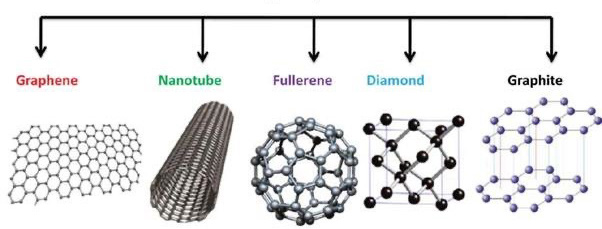Cancer is a devastating disease responsible for millions of deaths globally each year. It arises from abnormal cell growth, where cells multiply too quickly and lose their normal function. Traditional cancer treatments can lack specificity, harming healthy tissues, and often struggle to reach all the cancerous cells. Nanotechnology provides a revolutionary way to target cancer cells directly, increasing drug delivery and potentially reducing side effects. Nanoparticles can be tailored to specifically target cancer cells, enabling precise drug delivery that minimises harm to healthy tissues. But to create the most effective treatments, a deeper understanding of the ideal types of nanoparticles is crucial. Carbon nanotubes, for instance, have been investigated as nanocarriers for delivering chemotherapy drugs, genes, and proteins. What’s truly exciting is the potential to combine carbon nanotubes with plant-based anticancer compounds, opening up a whole new frontier for advanced treatments. In his research, Dr Zvikomborero Gwanzura, under supervision of Professors Willie Perold and Anna-Mart Engelbrecht, specifically focuses on developing a single-walled carbon nanotube (SWCNT) carrier combined with plant-based bioactive compounds to deliver targeted cancer therapy. Figure 1: Comparison of SWCNT, DWCNT and MWCNT properties The first phase of the study focused on purifying and functionalising the carbon nanotubes. Dr Gwanzura employed hydrochloric acid for purification and then functionalized the nanotubes with polyethylene glycol (PEG) and folic acid (FA). Fourier transform infrared (FTIR) spectroscopy confirmed the successful functionalisation. Four specific plants were chosen for investigation: Annona muricata, Dodonaea viscosa, Dicoma capensis, and Tulbaghia violacea. Two methods for plant extraction were compared, and the closed loop extraction method yielded the most bioactive compounds from the plant materials. Liquid chromatography-mass spectrometry (LC-MS) analysis corroborated these findings. Finally, the researchers bio-conjugated the functionalized carbon nanotubes with the bioactive compounds extracted from the four plants. Ultraviolet-visible (UV-Vis) spectroscopy confirmed the successful bio-conjugation. Figure 2: The different kinds of carbon allotropes The researcher conducted in vitro cytotoxicity studies to evaluate the effects of the bioactive compounds and their bio-conjugates on various cell lines. For this purpose, they used breast cancer cell lines (MCF-7 and MDA-MB-231), a colon cancer cell line (HT-29), and a non-tumorigenic breast epithelial cell line (MCF-12A). The results revealed low cell viability in cancer cell lines when exposed to the treatments, while the viability of normal cells remained higher. To quantify the effectiveness, half-maximal inhibitory concentration (IC50) values were determined for all the plant extracts, and all showed promising results with values below 30 μg/ml. Additionally, a selectivity index (SI) was calculated for each plant extract, revealing high values (greater than 2) for all, indicating a good selectivity for cancer cells. The bio-conjugates, compared to the plant extracts alone, displayed a further improvement: higher cell viability in normal cells and lower viability in cancer cells. This suggests that conjugation with carbon nanotubes enhanced both selectivity and efficacy. Interestingly, the bio-conjugate containing a mixture of extracts from all four plants demonstrated the lowest cell viability across all cancer cell lines, hinting at a synergistic effect. To understand how the bio-conjugates entered the cells, researchers employed fluorescence microscopy. His observations suggested that both folate receptor-mediated endocytosis and caveolae-mediated endocytosis were involved in the cellular uptake process. Finally, flow cytometry studies were conducted to determine the type of cell death induced in cancer cells. The analysis confirmed that the bio-conjugates triggered both apoptosis and necrosis in cancer cells. This study successfully demonstrated the use of carbon nanotubes as nanocarriers. Furthermore, bio-conjugation with plant-based bioactive compounds led to improved efficacy and selectivity towards cancer cells. To read the complete research, download and read Dr Gwanzura’s dissertation at https://scholar.sun.ac.za/items/c405106b-46ff-45f4-85d1-849ff363e5b0 
Purification and Functionalisation of Carbon Nanotubes

Assessing the Effects of Bioactive Compounds and Bio-Conjugates in Breast Cancer Cell Lines
Research Results





